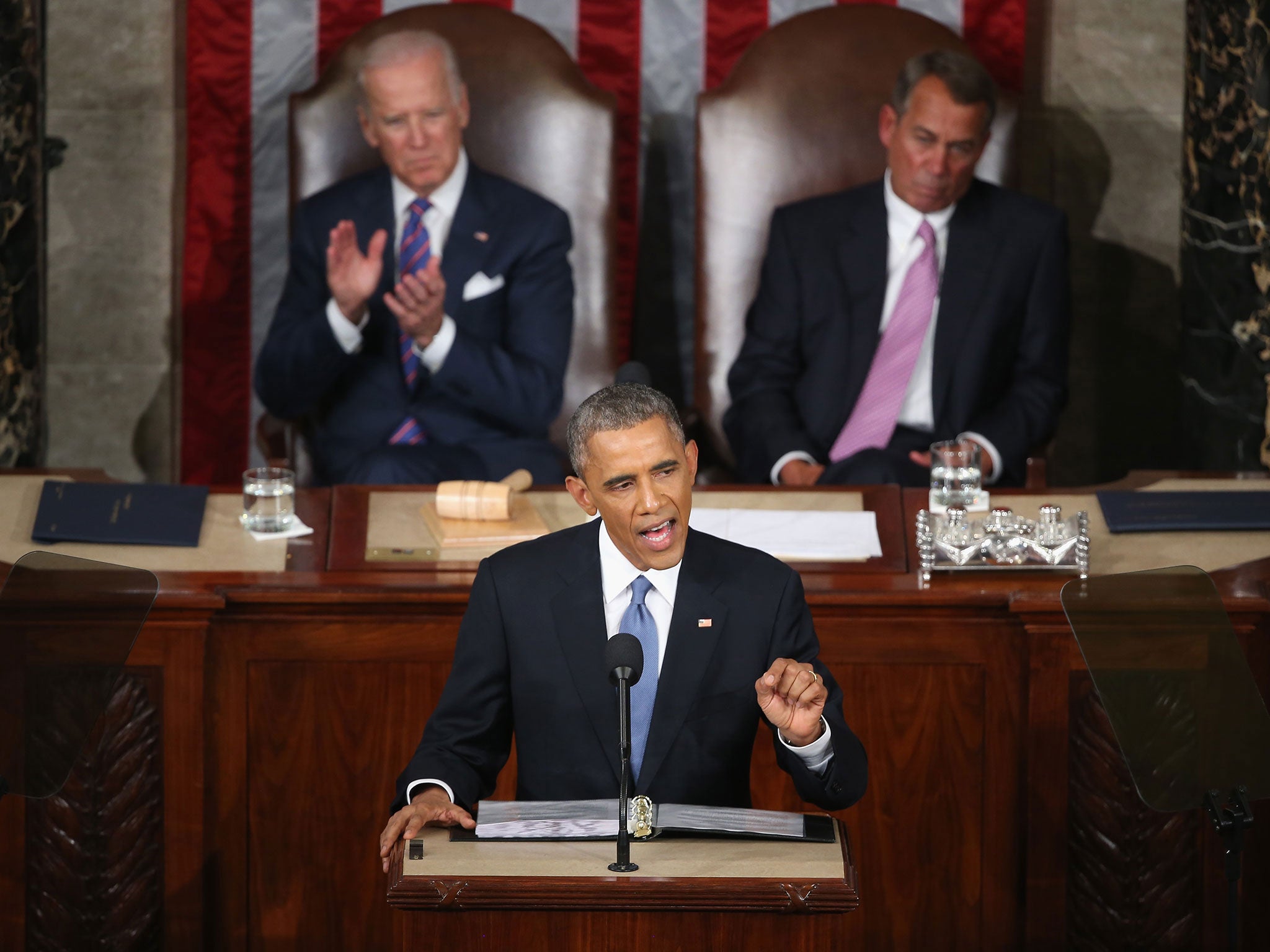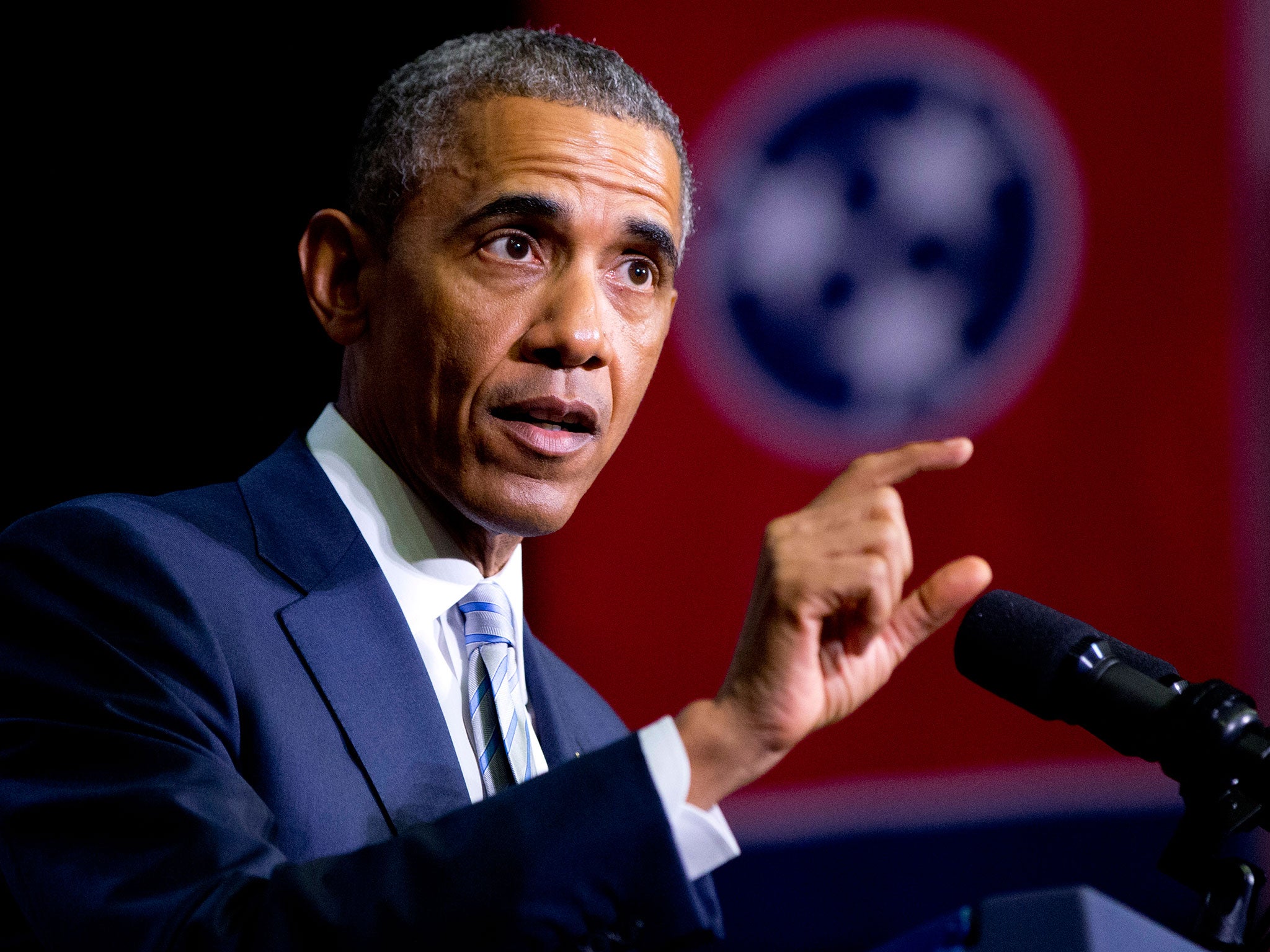US budget: Obama sets out to end the 'mindless austerity' and introduces tax hikes for wealthiest
Budget will put him on a war footing with congressional Republicans

Your support helps us to tell the story
From reproductive rights to climate change to Big Tech, The Independent is on the ground when the story is developing. Whether it's investigating the financials of Elon Musk's pro-Trump PAC or producing our latest documentary, 'The A Word', which shines a light on the American women fighting for reproductive rights, we know how important it is to parse out the facts from the messaging.
At such a critical moment in US history, we need reporters on the ground. Your donation allows us to keep sending journalists to speak to both sides of the story.
The Independent is trusted by Americans across the entire political spectrum. And unlike many other quality news outlets, we choose not to lock Americans out of our reporting and analysis with paywalls. We believe quality journalism should be available to everyone, paid for by those who can afford it.
Your support makes all the difference.President Barack Obama has unveiled a sweeping budget blueprint with tax hikes for America’s wealthiest and big corporations to fund new breaks for the middle class as well a broad infrastructure investment effort that together will once more put him on a war footing with congressional Republicans.
The record $4 trillion budget for the fiscal year that begins on 1 October puts meat on the bone of the combative State of the Union delivered by the president last month that emphasised helping middle class Americans by changes in the tax code and the creation of other programmes and tax benefits to lift their prospects. It is a plan for the future that “reflects our values,” President Obama insisted.
While the White House recognises the chances of the inches-thick document winning blanket approval by a Congress under Republican control are slim to zero, it stands as opening bid in a debate on tackling the income gap in America that is likely to dominate next year’s presidential race. It will present Republicans with some awkward choices as pressure rises on Washington to tackle income inequality.
With his new budget, Mr Obama is also proposing ending strict federal spending ceilings, notably on defence, that were imposed as part of a compromise to end an acrimonious budget stand-off in 2011. Calling on Congress to “replace mindless austerity with sensible investment,” Mr Obama noted that the federal deficit had been cut by two thirds since he came into office.
The proposed boost in spending for the Pentagon will be welcomed by Republicans, some of whom also have some sympathy with Mr Obama’s request for a special infrastructure fund to mend America’s many crumbling bridges, roads and airports and further expand broadband access. His broader message of taking money from the rich and giving it to the middle classes remains anathema to the party, however.
Many were already lining up to accuse Mr Obama of practising class warfare. He is trying to “exploit envy economics,” Paul Ryan, chairman of the House Ways and Means Committee, commented. “It may make for good politics. It doesn't make for good economic growth.”
His budget seeks a one-off 14 per cent tax on earnings parked overseas by large US businesses. Thereafter, corporations like General Electric and Microsoft, which have thus far evaded taxes on earnings moved outside the US, would pay a continuing 19 per cent overseas earnings tax rate. He also wants to raise capital gains rates on top earners and close inheritance tax loopholes.

The funds generated by the changes would be funneled variously towards the infrastructure bank, new child credits for the middle class, help with community college tuition for some students, a $1 billion fund to aid counties in Central America and a new boost in research spending by the US. As well as a base $534 billion budget for the Pentagon, Mr Obama is also requesting $51 billion in war funds, reflecting concerns about the threat from the Islamic State and ongoing trouble in Ukraine.
More than just numbers, the draft is a statement of Mr Obama’s priorities for his last two years and could serve as a basis for the party’s 2016 nominee widely expected to be Hillary Clinton.
Taken as a whole, the draft “affords him an opportunity to contrast his vision of helping the middle class with the Republican Congress’ approach of exacerbating inequality, ignoring the middle class and making the burdens of those who want to enter it even greater,” said Neera Tanden, president of the Center for American Progress, a liberal think tank in Washington.
Join our commenting forum
Join thought-provoking conversations, follow other Independent readers and see their replies
Comments